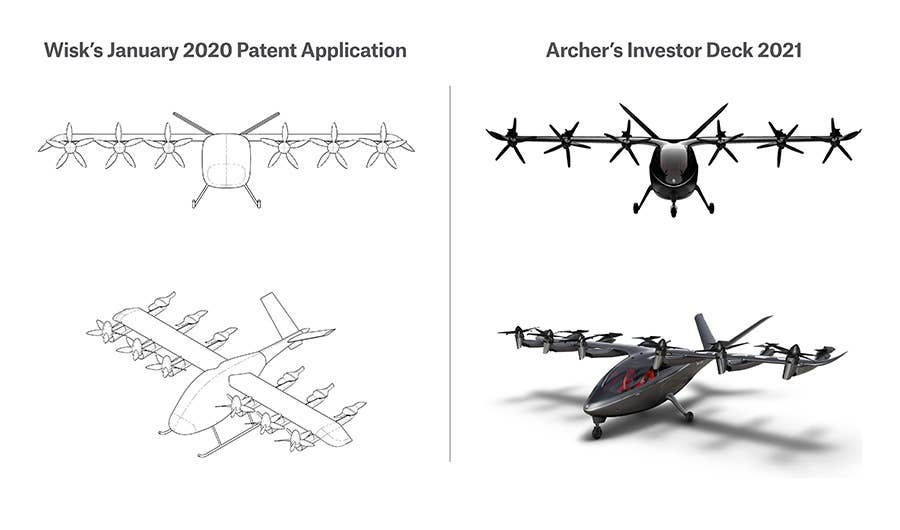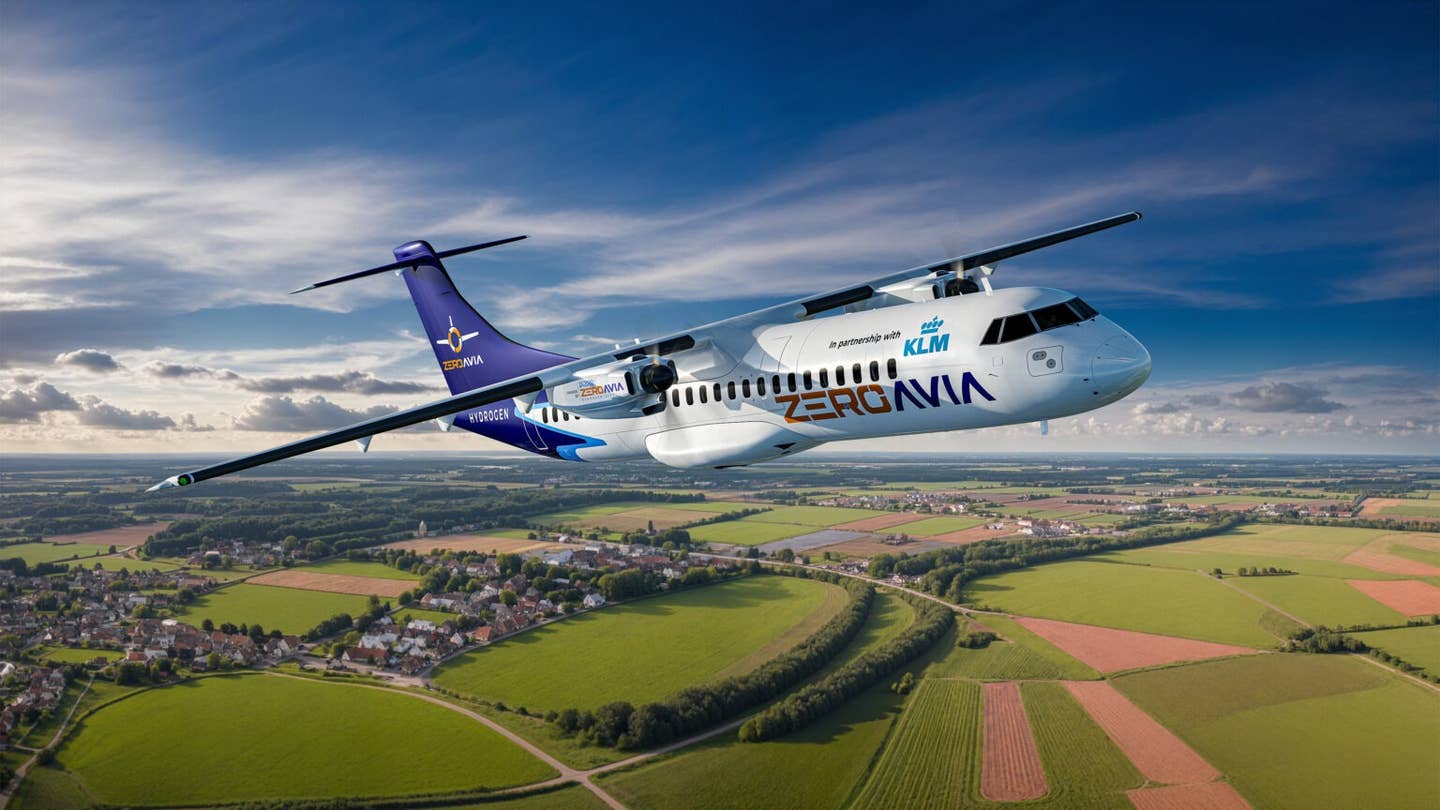
Wisk Aero court documents compare the rival companies’ aircraft designs. [Courtesy: U.S. District Court]
Archer Aviation (NYSE:ACHR) said Thursday that federal prosecutors told the company they won’t charge an Archer employee accused by rival Wisk Aero of stealing trade secrets.
For the past 10 months, Archer and Wisk have been locked in a bitter legal battle over their designs for electric vertical takeoff and landing (eVTOL) aircraft.
Archer said the U.S. Attorney’s Office in San Francisco’s Northern District of California alerted them last Friday of its decision to end an investigation of Jing Xue and not to file charges against the Archer engineer.
When asked to confirm Archer’s report, the U.S. Attorney's Office said in an email to FLYING that it “could neither confirm nor deny the existence or non-existence of an investigation—much less the end of any such investigation.”
Xue, a former Wisk employee, was accused of downloading “thousands of Wisk confidential files from an outside IP address” a month before he joined Archer, according to court documents filed last year.
The decision, Archer said, weakens Wisk’s position in the high-profile case.
“Wisk’s allegations of ‘brazen theft’ and ‘wholesale’ misappropriation made against this employee were gravely serious, and have serious consequences,” said Archer Chief Legal Counsel Andy Missan. “At a minimum, such allegations should have been backed up by serious evidence. This outcome serves as further confirmation of what we’ve asserted from the outset of this case: Wisk’s claims lack any factual basis.”
“Wisk’s allegations of ‘brazen theft’ and ‘wholesale’ misappropriation made against this employee were gravely serious, and have serious consequences."
Archer Chief Legal Counsel Andy Missan
Potentially, hundreds of millions of dollars are at stake in the case, as both companies work to develop new types of aircraft in an industry that Morgan Stanley projects could be worth $1 trillion by 2040 and $9 trillion by 2050. Archer—which has partnered with United Airlines—and Wisk—which is coming off a $450 million investment by Boeing—are both aiming to create zero-emission air taxis that carry passengers for short distances over congested urban areas.
“We believe the U.S. Attorney’s Office decision strikes at the very heart of Wisk’s trade secret allegations against Archer and reinforces what we have said all along: that Boeing’s joint venture, Wisk, misused the judicial and criminal justice systems for the sole purpose of stifling innovation,” Missan said in the statement. “We find these kinds of anti-competitive tactics by big business deeply disturbing.”
"Our case involves multiple claims based on substantial evidence of both trade secret misappropriation and patent infringement. The defendant in our case is Archer, and we remain focused on holding it accountable at trial.”
Wisk spokesperson in an email to FLYING
In an email to FLYING, a Wisk spokesperson responded to Archer’s statement, saying the “DoJ [Department of Justice] criminal investigation has always been entirely separate from our civil litigation against Archer. Our case involves multiple claims based on substantial evidence of both trade secret misappropriation and patent infringement. The defendant in our case is Archer, and we remain focused on holding it accountable at trial.”
Last year, Archer accused Wisk of mounting a “knowingly false extra-judicial smear campaign.” Both companies deny any wrongdoing.
Documents in the case, which is set to go to trial early next year, reveal several pointed comments on both sides, with so many legal filings that Judge William Orrick III has told both sides to “focus on what really matters.”
Last July, Orrick denied Wisk’s motion for an injunction, saying he wasn’t convinced by Wisk’s evidence.
But when Archer filed a motion asking the court to dismiss the case, the judge denied it saying, “Wisk’s disclosure and identification of its trade secrets are sufficient and it has plausibly alleged that Archer misappropriated at least some of them.”
Last December, Archer flew its Maker air taxi test article for the first time during a brief hover test at its California flight test facility. Archer says it remains on track to receive FAA type certification for its production aircraft in time to be certificated as a commercial carrier by 2024.
Wisk, which is backed by Google co-founder Larry Page, plans to launch commercial operations with automated passenger flights, although the privately held company is not revealing its expected timeline for certification or entering service. Currently working on its sixth-generation eVTOL, Wisk last month said it was “approaching 1,600 test flights without incident,” since the company formed in 2019.

Subscribe to Our Newsletter
Get the latest FLYING stories delivered directly to your inbox






